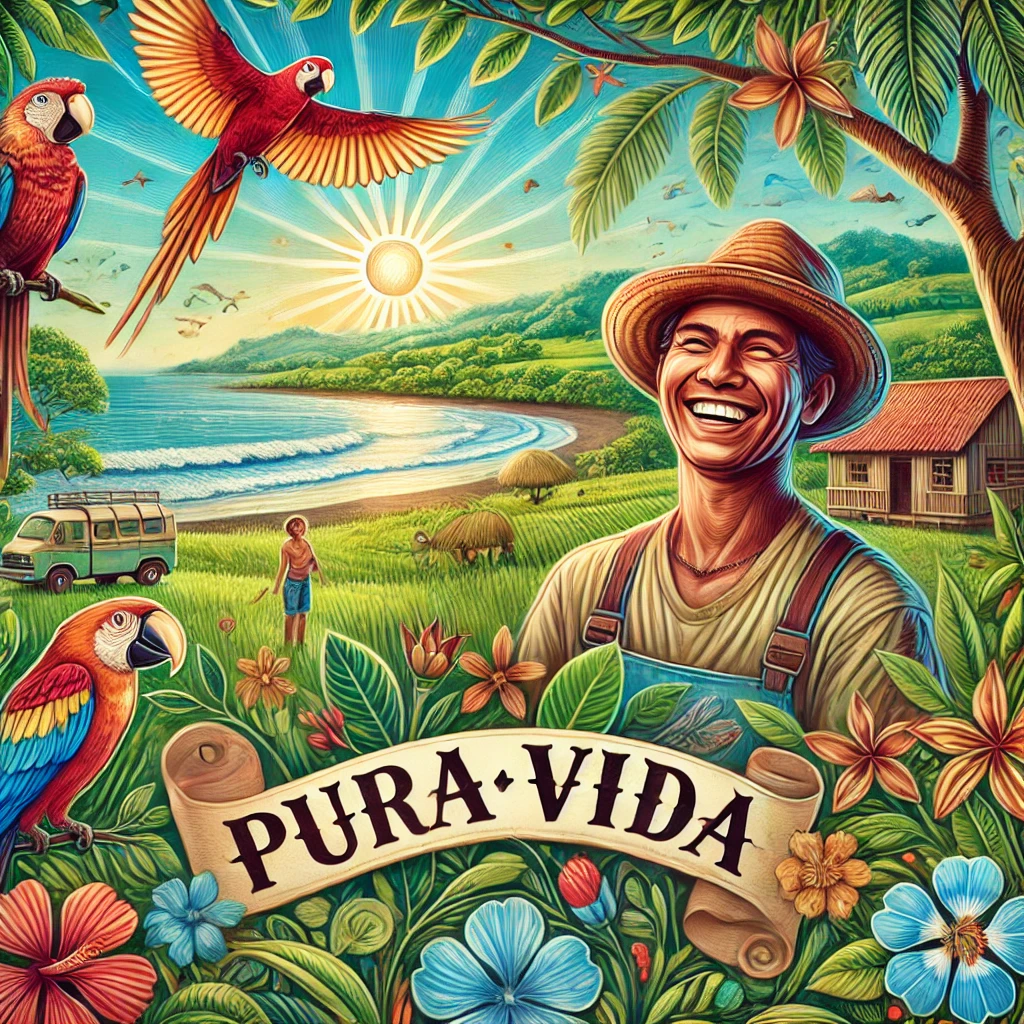What Does “Pura Vida” Mean in Costa Rica?
If you’ve ever visited Costa Rica or interacted with Costa Ricans, you’ve probably heard the phrase “Pura Vida” countless times. It’s more than just a saying—it’s a way of life. But what exactly does it mean, and where did it come from? Let’s dive into the fascinating origin of “Pura Vida” and why it has become Costa Rica’s unofficial mantra.
The Meaning of “Pura Vida”
Literally translated, “Pura Vida” means “Pure Life.” However, its meaning goes far beyond the literal translation. In Costa Rica, “Pura Vida” is used as a greeting, a farewell, an expression of happiness, and even as a way to say “everything’s good.” It’s an embodiment of optimism, gratitude, and a stress-free outlook on life. To put it simply, “Pura Vida” is Costa Rica’s way of saying life is beautiful, so enjoy it.

The Surprising Mexican Origin of “Pura Vida”
You might be surprised to learn that this quintessentially Costa Rican phrase didn’t originate in Costa Rica. Its roots trace back to 1956, with a Mexican film titled “Pura Vida”, part of the Golden Age of Mexican cinema.
In the movie, Mexican actor José Antonio Espino (better known as “Clavillazo”) plays a cheerful and optimistic campesino who, despite his struggles, continuously proclaims “Pura Vida” as a testament to his positive outlook on life.
The movie was screened in Costa Rica for just two weeks, but it left a lasting impression. Those who saw it began repeating the phrase, and by the 1970s, “Pura Vida” had spread throughout the country, becoming an integral part of Costa Rican identity.
Why Costa Rica Adopted “Pura Vida”
So, why did Costa Rica embrace this phrase when other countries didn’t? The answer lies in the country’s unique cultural DNA. Costa Ricans, or “Ticos,” are known for their peaceful, friendly, and optimistic nature. It’s as if the sentiment of “Pura Vida” was already ingrained in their spirit, just waiting for the right words to express it.
As one commentator insightfully put it, “The attitude of ‘Pura Vida’ was already within us; we were simply waiting for the right phrase to define it.”
Shared Cultural Roots in Latin America
The story of “Pura Vida” highlights the deep connections between Latin American countries. While some might feel uneasy about the phrase’s Mexican origin, it’s a testament to the shared cultural heritage of the region. As Costa Rican-born, Mexican-adopted singer Chavela Vargas once said, “La frase nace donde se le da la chingada gana.” This means that culture transcends borders, and we all contribute to one another’s identity.
Costa Rica adopted “Pura Vida” as its own because it resonated with the Tico way of life. Similarly, Latin America thrives on cultural exchanges, blending and reinterpreting ideas to create something uniquely its own.

Why Tourists Love “Pura Vida”
For visitors to Costa Rica, hearing “Pura Vida” feels like an invitation to embrace the Tico lifestyle. It’s a reminder to slow down, appreciate life’s simple joys, and connect with the natural beauty of Costa Rica. Whether you’re relaxing on a beach in Guanacaste or exploring the lush rainforests of Monteverde, the essence of “Pura Vida” will stay with you long after you leave.
The Timeless Appeal of “Pura Vida”
In the end, “Pura Vida” isn’t just a phrase. It’s a celebration of life, resilience, and the unbreakable bond of shared humanity. It reminds us that no matter where we come from, we have the power to find joy in the present moment.
So next time you hear someone say “Pura Vida”, remember its rich history and take it as an invitation to live life to the fullest. After all, as Costa Ricans have shown the world, “Pura Vida” is more than just words—it’s a way of being.
Plan Your Visit to Costa Rica
Ready to experience Pura Vida for yourself? Whether you’re looking to relax, explore, or embrace the Tico lifestyle, Costa Rica has it all. Start planning your trip today, and don’t forget to greet everyone you meet with a cheerful “¡Pura Vida!”

